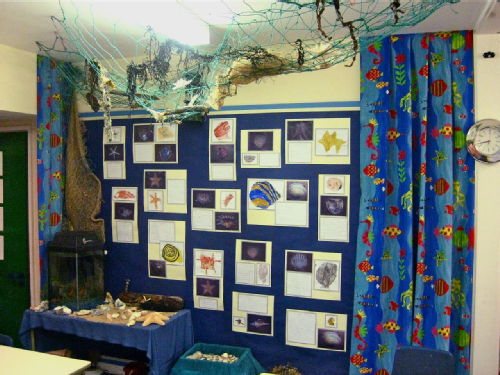All entries for Wednesday 17 June 2009
June 17, 2009
Student attitudes to plagiarism, focus groups
This is a short report on an ongoing investigation into the support that we provide for students concerning plagiarism and academic integrity. We are looking into the provision of resources and activities that complement source matching software. It also presents significant information on an issue that might prevent students from being more creative, collaborative and experimental in how they learn.
15 years ago I was an undergraduate philosophy student at Warwick, doing my final examinations and writing my dissertation. I had a great time, having always enjoyed academic writing. I even enjoyed doing exams! – Yes: “weirdo”.
I did well. That was probably more to do with my enthusiasm for thinking and writing than any innate genius. But also, I felt as if I was working within a creative and free-thinking environment. Sharing ideas and supporting each other was key to that. The academics and PhD students with whom I studied made us feel as if we were contributing collectively to the advancement of thought and culture. At the time I had few worries. Plagiarism certainly was not one of them. We all knew what it was, and that it was wrong. But I don’t think that we ever thought much about it. It certainly wasn’t something to worry about.
In the last few days I have been running and reviewing focus groups to investigate the current student understanding of and attitudes towards plagiarism and its role in a wider sense of “academic integrity”. I co-led the sessions with Han-Na Cha of the Centre for Student Development and Enterprise. Han-Na is also a Warwick graduate, but somewhat younger than I. Despite having graduated more recently, I think that Han-Na was as surprised as I was when we realised just how anxious the students are about plagiarism. They are very seriously concerned about it, to the point at which it is disrupting their ability to write fluently and with enjoyment. A colleague from the Library has also encountered this when teaching key skills to students.
It has to be said that the students we talked with are not entirely representative. Han-Na is focussing upon taught masters students. They are different to undergraduates in some important ways. A masters course is shorter and more intense. The students are expected to be more independent and research-oriented. Assessment activities are often more like investigations than essays – meaning that the end product is constructed over a longer time (with more risk of mixing up notes and accidentally failing to cite sources correctly). Quite often, masters students will have successfully completed undergraduate study in one subject, and then moved to undertake a masters in a different subject. Having mastered one style of research, referencing and writing, they must quickly adapt to a different style. They are also more likely to be international (non-EU) students. Which means that they come from often very different academic cultures. This was recognized by all of the students as being a contributing factor.
However, I do suspect that the anxieties that were expressed in the sessions, and some of the root causes of those worries, are felt much more widely.
I can see some contributing trends, beyond those specific to international masters students:
- Referencing seems to be a point of stress, with many different systems being used. There may even be different variations of style enforced in assessment within the same course. Students can lose marks for getting referencing wrong. They feel that they might be accused of plagiarism if they fail to give enough citations. We heard that they might spend more time on referencing than on writing. Support with the mechanisms of referencing is needed. But perhaps more importantly, students need support to understand how to use sources to support their writing without it getting in the way of good academic writing.
- Originality, the students told us, is seen as being essential, but at the same time must be justified with demonstrable academic rigour. That’s quite a hard act to pull-off. The students don’t seem to be well equipped with the skills to combine the two. But that is a rare skill anywhere.
- Collaboration, they are told, is important. But they don’t seem to get much guidance on the line between collaboration and collusion, and how to write about collaborative work. This is a matter of intellectual property. An essential skill.
- I suspect that, with the increase in access to online journals and other electronic resources, students are expected to use a much wider range of sources. This makes note taking, referencing and writing more of a challenge. It seems that note-taking techniques and tools have not developed to cope with this.
- And finally, we have the threat of automated plagiarism detection: Turn It In. The students all know about this. If we believe that machines are infallible, but doubt our own ability to write and reference perfectly, then a system like Turn It In would make innocent law abiding citizens worried. Of course we know that it’s not that simple. It is only a “source matching” tool. But the students are un-necessarily worried.
New research project, new blog
Welcome to my new blog and my new research project. I will be using these pages to publish an ongoing journal of my research activities. It will help me to keep track of and understand all of the many and varied things that I will be doing. And judging from the response that I have already received when presenting these ideas and plans at conferences, it should also be of interest to lots of other people in HE and beyond.
Firstly, a few words about me and my project, to give you an insight into why this particular channel of communication will be so essential to my work. Here's a summary of what I am trying to achieve, taken from the more complete abstract:
This is the PhD project of Robert O'Toole. It will investigate the effects of the current dramatic increase in the user-configurability of physical and online learning (teaching) spaces, and the tools and techniques with which they are constructed. The concept of 'learning space' will be explored and developed into a methodology for design and evaluation. This methodology will be applied to a range of new physical learning spaces (online, offline and blended), including (at Warwick) the Teaching Grid, Learning Grid, CAPITAL Centre and Reinvention Studio, as well as new developments in schools and businesses. Most significantly, a design-led approach to choosing, adapting and using technology enhanced learning spaces will be promoted to students and teachers, through a series of action-research studies - the aim being to empower people to take control of their learning spaces, so as to fully exploit the new possibilities offered by increased user-configurability. Beyond 'information literacy' and 'digital literacy', with the addition of a 'design literacy' that enables students and teachers to become effective designers and users of their own learning and learning spaces.
I've highlighted that last sentence for two reasons: it's the "big idea" that I want to explore; but also, it should be taken as more than just a research proposition - it's a manifesto for how I think teaching and learning should be done. This certainly will not be a research project to be filed away and forgotten upon completion. Right from the start, I am setting out to change practice and to open up new opportunities for excellence and achievement. As a successful [e]learning developer and consultant at Warwick, I already have lots of scope for doing that - perhaps too much! But in setting this up as a formal research project, a PhD even, I am aiming to join up all of the many things that I already do with a more "academic" more "rigorous" stance. This blog will help me in making those connections and building that conceptual/pragmatic continuum. It will also help me to more efficiently record and make the most of all of the things that I encounter in this research and my work - important considering that I have a full-time job and a small child to look after.
What then will you find in this blog as it develops? Here's some things that I will be writing about:
- Why the study of learning space matters, and what it means.
- A formal methodology for the study and design of learning space.
- How cognitive science, philosophy, sociology, arts and design helps.
- What this means for practice and policy.
I will be carrying out observations and investigations of learning spaces in action, reporting on what I see at Warwick and elsewhere (with photos, video, audio, text and diagrams). And from all of this, I will undertake "action research" to establish how we can enable "students and teachers to become effective designers and users of their own learning and learning spaces."
There will also be image galleries and podcasts that may be of use more widely (you can use any of the resources I publish for your own work), as well as book and event reviews. In the left hand column on the blog design, you can find links to the many partners that I will be working with, as well as other useful web sites and blogs.
I'll end this first entry with a provocational image. I am very much a "HE" researcher. But I will be looking at what we can learn from other educational contexts, especially primary schools and museums. There is much for us to learn! I'm not saying that a university should look like a primary school. I am saying that in the primary sector design is taken very seriously. They understand the transformational effect that can be achieved through standing back and thinking about it with care, flare and the right methodology. Here's a great example from a school at the forefront of "creativity" and "design":

Ashmead Primary School, Aylesbury.
 Robert O'Toole
Robert O'Toole

 Please wait - comments are loading
Please wait - comments are loading



